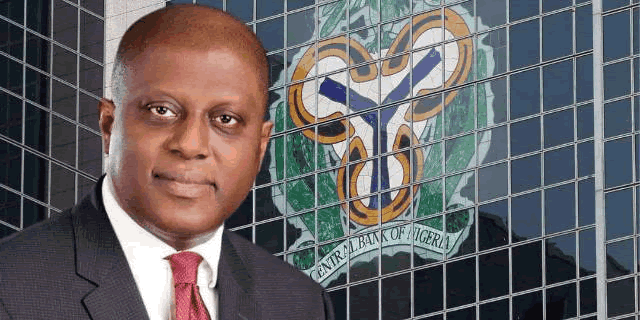Central Bank of Nigeria’s Governor, Mr. Olayemi Cardoso, has noted a growing confidence among investors in the apex bank’s management of the foreign exchange (FX) market. In an interview with the Financial Times (FT), Cardoso highlighted a significant shift in investor sentiment, noting that while previously investors were inclined to react swiftly to currency fluctuations, they now exhibit a more nuanced understanding of the market’s dynamics.
However, amidst this positive sentiment, Fitch Ratings raised concerns about the regulatory direction of the CBN, suggesting that recent measures might hinder the banking sector’s ability to support the country’s revised economic trajectory. Specifically, Fitch flagged a $2.2 billion foreign exchange backlog, which Cardoso clarified could not be verified and therefore would not be honored.
Meanwhile, the naira experienced declines in both the official FX window and the parallel FX market. This was accompanied by reports of the Economic and Financial Crimes Commission (EFCC) continuing to apprehend Bureau de Change (BDC) operators in Lagos.
At the Nigerian Autonomous Foreign Exchange (NAFEM) window, the naira depreciated to N1,478.11/$1, marking a loss compared to its previous rate. Similarly, the parallel market FX rate witnessed a decline, closing at N1,485/$1.
Despite these fluctuations, there was a notable increase in daily FX turnover, signaling heightened market activity. Cardoso also addressed concerns regarding rising inflation, indicating that the Monetary Policy Committee (MPC), which he chairs, would take appropriate measures to address the issue.
In line with efforts to tackle inflation, Cardoso affirmed that interest rates would remain high as necessary, reflecting the CBN’s commitment to orthodox monetary policies. He emphasized the bank’s reorientation towards prioritizing price and monetary stability, evident in recent rate hikes.
Investors have responded positively to these measures, with Cardoso noting a stabilizing effect on the naira. He attributed this shift in investor behavior to their increasing comfort with the market’s dynamics, signaling a departure from previous tendencies to react impulsively to currency fluctuations.
In conclusion, Cardoso’s leadership at the CBN reflects a strategic focus on restoring market confidence, implementing orthodox monetary policies, and addressing economic challenges proactively.
NewsAnalytrics Analysis
The economic analysis of the situation outlined in the text reveals several key points:
- Foreign Exchange Management: The confidence expressed by investors in the Central Bank of Nigeria’s (CBN) management of the foreign exchange (FX) market suggests a positive outlook for Nigeria’s currency stability. This confidence is crucial for attracting foreign investment and stabilizing the economy.
- Regulatory Concerns: Despite investor confidence, Fitch Ratings’ reservations about the regulatory direction of the CBN raise concerns about potential obstacles to economic growth. Regulatory uncertainty can deter investors and hinder the effectiveness of monetary policy measures.
- Naira Fluctuations: The depreciation of the naira in both the official and parallel FX markets indicates ongoing volatility and uncertainty. This volatility can have adverse effects on businesses, consumers, and overall economic stability, affecting inflation and investor confidence.
- Inflation Management: The commitment of the Monetary Policy Committee (MPC) to address rising inflation demonstrates proactive measures to stabilize prices and maintain macroeconomic stability. High inflation erodes purchasing power, reduces consumer confidence, and can hinder economic growth.
- Monetary Policy Stance: The decision to maintain high-interest rates as part of orthodox monetary policy aims to combat inflation and stabilize the currency. However, high-interest rates can also dampen investment and consumer spending, potentially slowing economic growth in the short term.
- Market Sentiment: The observed increase in daily FX turnover alongside a stabilizing effect on the naira suggests improving market sentiment and growing confidence among investors. Positive market sentiment can encourage investment, stimulate economic activity, and support currency stability.
In summary, while there are concerns regarding regulatory direction and currency fluctuations, proactive monetary policy measures and growing investor confidence indicate potential for economic stability and growth in Nigeria. However, continued monitoring of key economic indicators and effective policy implementation will be crucial for navigating challenges and ensuring sustained economic recovery.


